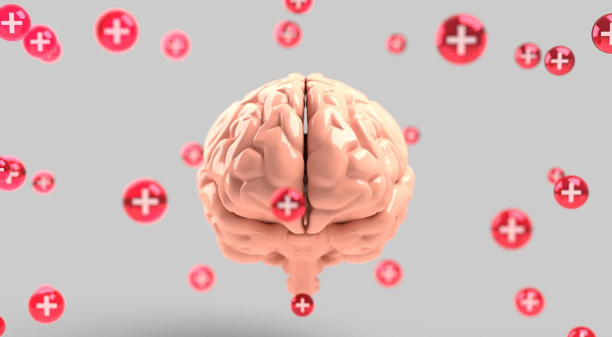Reimagining Youth Psychiatry: Dr. Myleme Ojinga Harrison’s Mission to Humanize Mental Healthcare

Young people are struggling, and many parents can feel it before they see it in a report or diagnosis. Whether it’s sudden withdrawal, anxiety, anger, or just silence, something is shifting—and often, the traditional mental health system isn’t built to catch them in time.
Dr. Myleme Ojinga Harrison, a psychiatrist specializing in adolescent care, believes there’s a better way. He’s not just focused on treating symptoms—he’s building relationships, restoring trust, and reshaping what it means to provide care to young people.
His approach starts with a simple but powerful principle: connection comes before correction.
Meeting Teens Where They Are
In many psychiatric settings, the process can feel rushed. A young person arrives, often unsure of why they’re even there, and within 30 minutes, they’re handed a diagnosis and a treatment plan. For families, it can feel clinical. For teens, it can feel cold.
Dr. Harrison sees this pattern often. But in his practice, the experience is different. Instead of jumping into labels and protocols, he listens. He learns. He takes the time to understand the full picture—not just what’s happening on the surface, but what’s underneath.
“Young people are often told what’s wrong with them before anyone really asks who they are,” he says. “That disconnect can close them off before the work even begins.”
His sessions are built around conversation, not confrontation. And for many adolescents, it’s the first time they’ve felt safe enough to speak honestly about what they’re going through.
Trust Isn’t a Bonus—It’s the Work
In psychiatry, especially with adolescents, trust isn’t something extra—it’s the foundation. Dr. Harrison makes it a priority in every interaction, and parents often see the difference early on.
When a teenager feels they’re being heard instead of judged, something shifts. They start showing up more honestly. They lean into the process, rather than resisting it.
This isn’t by accident. Dr. Harrison structures his approach to make space for that trust to grow. He doesn’t assume it—he earns it. And he encourages other mental health professionals to do the same.
“We don’t heal in places where we don’t feel safe,” he says. “And for a lot of kids, the traditional clinical space hasn’t felt safe for a long time.”
Culture Matters in Mental Health
One of the most overlooked parts of adolescent psychiatry is culture—how identity, background, and community shape a young person’s experience. Dr. Harrison doesn’t treat culture as an afterthought. He integrates it into his care.
As a Black psychiatrist, he understands how racial dynamics, generational trauma, and community history can impact a young person’s willingness to open up. He sees it all the time: teens who’ve had negative experiences with authority, or who don’t see themselves reflected in the professionals meant to help them.
“That kind of disconnection doesn’t always show up in the data, but it shows up in the room,” he explains. “If we don’t acknowledge it, we’re not really doing our jobs.”
By creating culturally aware environments, Dr. Harrison helps adolescents feel more seen. And when teens feel seen, they begin to trust the process. That trust often becomes the turning point.
Bringing Care Into Real Life
While Dr. Harrison’s work often begins in one-on-one sessions, it doesn’t stop there. He’s been involved in helping schools and community organizations build mental health programs that actually meet kids where they are.
He encourages systems to think practically: How can we make mental health support part of a student’s daily life, rather than something that only shows up when there’s a crisis? What would it look like to have clinicians working alongside educators, rather than operating in silos?
These are the kinds of changes he’s advocating for—not just because they sound good on paper, but because they reflect what young people actually need.
“If we wait until a crisis to step in, we’ve waited too long,” he says. “Mental health care has to be proactive, not just reactive.”
A More Ethical Model for Mental Healthcare
At the center of Dr. Harrison’s work is a question: What does it mean to care for someone, really?
For him, it means moving beyond symptom charts and checklists. It means showing up, listening fully, and treating adolescents with the respect they deserve. It means being flexible and curious, even when the path forward isn’t obvious.
That approach may not always fit the traditional mold, but the outcomes speak for themselves. Families report stronger relationships. Teens begin to advocate for themselves. The process becomes something they engage with, not something that’s done to them.
And for Dr. Harrison, that’s what good care should feel like.
Looking Ahead
As more families seek help for their children, and as the mental health field looks for solutions, Dr. Harrison’s work offers a roadmap. It’s not based on quick fixes or one-size-fits-all models. It’s grounded in something more sustainable: the idea that care starts with connection.
For parents who are searching for answers, or who feel stuck in a system that isn’t working, Dr. Harrison’s message is clear. There is a path forward. And it begins by treating young people not as problems to solve, but as people worth understanding.
Originally Published on – https://www.msn.com/en-us/family-and-relationships/parenting/reimagining-youth-psychiatry-dr-myleme-ojinga-harrison-s-mission-to-humanize-mental-healthcare/ar-AA1JiL7f?ocid=BingNewsSerp